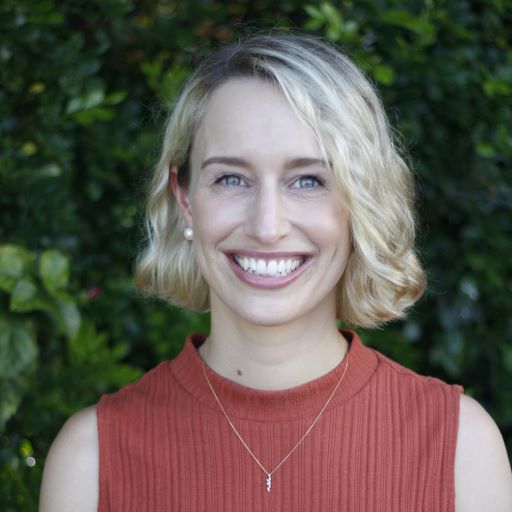ALTA Member Profile – Kate McAlister – Markster
Tell us a bit about your background.
I originally started my legal career in private practice but took the opportunity to go in-house very early on, working for a global technology company. In this role I was charged with managing the intellectual property portfolio and worked with external counsel to protect, manage and enforce the company’s intellectual property. I found a passion for intellectual property and knew this was the area I wanted to specialise in. I eventually went back to a firm to deepen my knowledge and skills in this area. After that, I spent a year lecturing in intellectual property law at QUT, a university based in Brisbane. It was during this year, when I was deciding what my next steps would be, that my co-founders and I started designing and developing a technology platform to help intellectual property owners and in-house teams easily manage their intellectual property.
Do you remember the moment your journey with legal technology began? When was it and what did you think about the Australian market at the time?
I’ve always had an interest in technology. At university I studied in the US for 6 months and then did an internship at a technology trade association in Washington DC representing some incredible global technology companies. This passion continued while working in-house at a global tech company and then when I went back into private practice in the intellectual property and technology team. However, it wasn’t until I began my own journey in legal tech that I began to learn more about it and the exciting, growing legal technology sector we have here in Australia.
What are your key milestone moments for Markster and how did the company start?
My experience as an external intellectual property lawyer taught me the intricacies of intellectual property law. It also taught me how administrative, inefficient and expensive the intellectual property protection and management process can be without the use of technology and automation.
Working on the client-side taught me the pain-points of managing a large intellectual property portfolio and the issues in-house counsel face. Most in-house teams use excel spreadsheets to manage their intellectual property, increasing the administrative burden on already busy in-house teams. Manual record keeping increases risk as mistakes can be made and things forgotten. It also means that in-house teams don’t have real-time oversight or transparency of their assets, forcing them to rely on external counsel for updates or answers to straightforward / BAU issues, increasing external costs and time delays. It was these pain points that led us to start Markster and build the Markster platform to help in-house teams more easily manage their IP.
It is still early days for us but some of the most exciting milestones were when we built an MVP of our platform, when we onboarded our first customer and when one of our largest customers transferred its entire Australian and international portfolio over to us to manage through our platform. That was a very exciting milestone.
Describe a typical day in your life.
My days can vary greatly. Our main focus right now is growing awareness of Markster and the benefits our platform can bring, particularly to in-house teams that manage intellectual property portfolios. This means reaching out to potential customers, engaging with the in-house legal community, attending events and doing demos.
A large part of my day also includes onboarding new customers and speaking with current users to get feedback to improve the platform. One of our main values is customer excellence, so we have a relentless focus on the customer experience. We are focused on continual improvement, user experience and user centred design, which means we focus on ensuring the platform continues to be developed and improved in a way that brings the most value to our customers.
Entrepreneurship can be rewarding and challenging in equal measure. From your time building Markster with your team, what do you believe are the important skills for a legal tech founder’s success?
Problem solving – building a successful start-up means solving a real problem. If you are building something new you are going to have to try new things and different ways to solve problems and issues that arise. It helps to have a diverse set of backgrounds and skills in your founding team, so lots of different views, experiences and perspectives can be brought to the table.
Resilience – as a founder you have to continually put yourself out there, trying new things and meeting new people. You have to believe in yourself, what you are trying to achieve and continually refer back to this.
Founding a legal tech company is full of uncertainties and we can then throw COVID into the mix. If you could go back in time to give yourself one piece of advice at a time of uncertainty what would you say to your younger self?
If 2020 and 2021 have taught us anything, it’s that we should all try to get a little more comfortable with uncertainty. As a lawyer, uncertainty is something we are trained not to be comfortable with. Lawyers typically have a conservative mindset when it comes to risk. Yet, as an entrepreneur you learn quickly that nothing is certain. Challenges inevitably arise when you are trying to build something that doesn’t exist or solve a problem that hasn’t been solved. If I could go back in time, I’d try and convince my younger self that the best thing about uncertainty is the opportunity it presents for growth. I now try to look at uncertainty and even failure as opportunities to grow, rather than uncomfortable experiences to be avoided.
Australia is a ‘relatively small market when compared to the rest of the world. Where do overseas markets sit on the priority list – and what are your tips/thoughts on growing a business globally out of Australia?
The Markster platform already has the capability to help customers that have global IP portfolios. In terms of growing our own customer base, Markster is still a young company so our main focus in the near future is continuing to grow our customer base and customer awareness in the Australian market. In the longer term, our intention is to expand overseas and service customers globally.
As we enter into 2022, what are the three priorities that you are focusing on this year, and what would you like to achieve in the upcoming years for Markster?
We have big plans and big goals for 2022. Our main focus is going to be continuing to grow awareness of our product, the Markster Platform, and continuing to grow our customer base. We are also focusing on continuing to improve the platform and deliver value to our current customers.
Where can we find more about what you are doing and stay up to date with Markster?
We have an active LinkedIn page, and my personal LinkedIn is a great way to connect and find out what we are doing at Markster. People can also check out the Markster website to stay up-to-date with what we are doing.
Connect with Kate McAlister on LinkedIn.
Follow Markster on LinkedIn.
Find out more about Markster at www.markster.com.au




